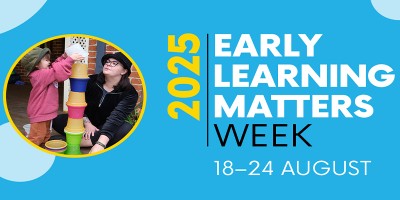High-quality early education and care is more than preparation for school—it’s the foundation for a child’s lifelong well-being, confidence, and achievement. During Early Learning Matters Week, educators, families, and communities come together to celebrate the transformative impact of play-based learning in shaping enthusiastic, capable learners.
Learning Through Play
Play is the natural language of children. It’s how they explore the world, test ideas, solve problems, and express emotions. In high-quality early learning environments, play is intentionally guided to support:
- Cognitive development and curiosity
- Language and communication skills
- Emotional regulation and resilience
- Social interaction and empathy
Educators use play to scaffold learning, observe emerging interests, and foster a sense of agency in children.
Building Confidence and Wellbeing
When children feel safe, valued, and supported, they thrive. Quality early learning settings:
- Promote secure relationships with educators and peers
- Encourage independence and decision-making
- Celebrate effort and creativity, not just outcomes
These experiences build confidence, self-esteem, and a strong sense of identity—critical foundations for well-being throughout life.
Achievement Beyond Academics
Early learning isn’t just about literacy and numeracy. It’s about nurturing the whole child. Research shows that children who attend high-quality early education programs are more likely to:
- Transition smoothly into school
- Develop positive attitudes toward learning
- Achieve academically and socially over time
A Collective Commitment
Early Learning Matters Week reminds us that early education is a shared responsibility. Families, educators, policymakers, and communities all play a role in ensuring every child has access to environments that support joyful, meaningful learning.
Reference:
Early Learning Matters Week
